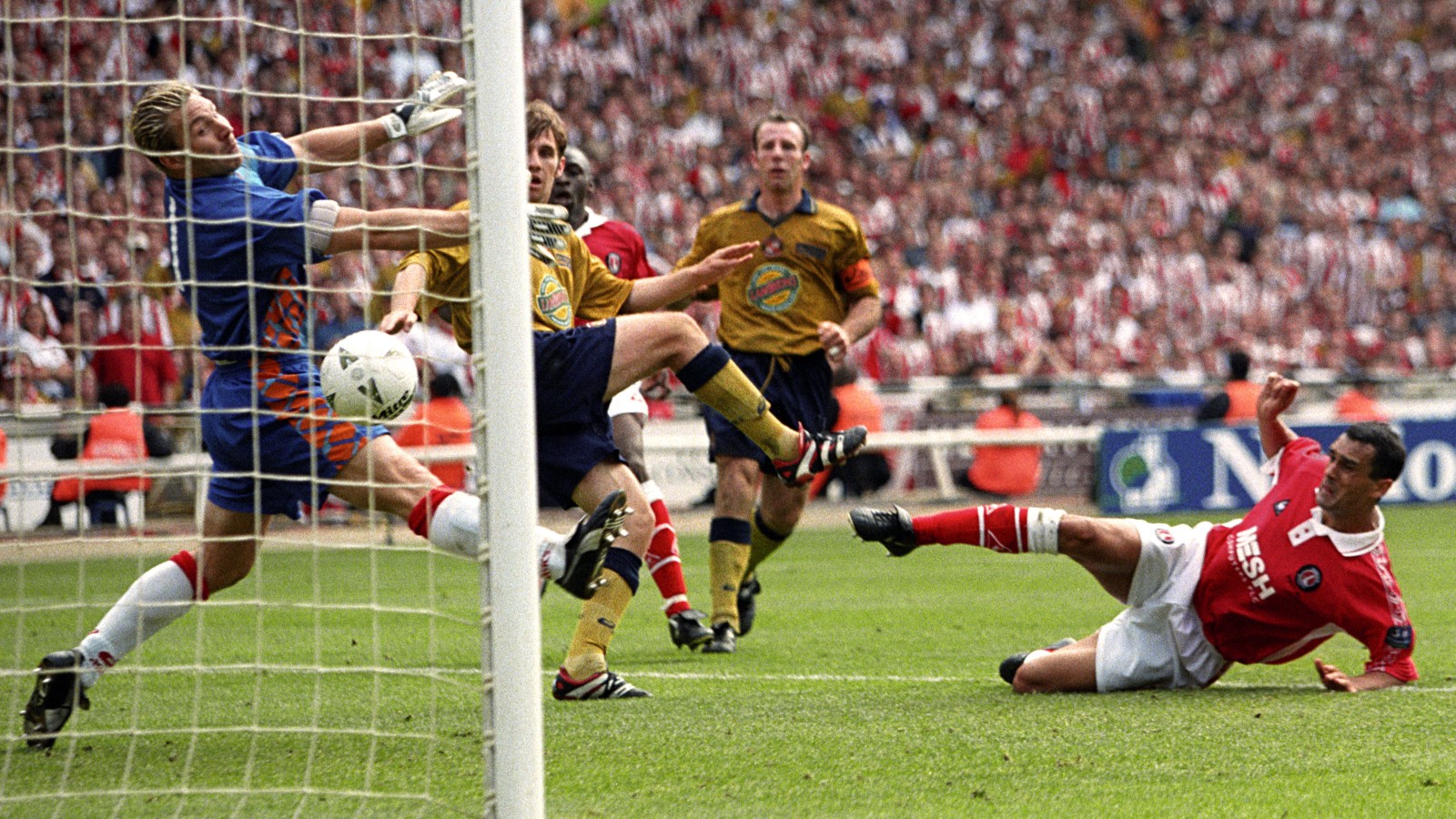Friday, May 25th marks two decades since Clive Mendonca scored a stunning hat-trick in Charlton’s iconic play-off victory over Sunderland at Wembley.
The striker, in his debut campaign in SE7, took his seasonal tally to 28 goals by bagging three at the national stadium, while Richard Rufus also scored to force to tie to a penalty shootout.
After an agonising 13 penalties, goalkeeper Sasa Ilic saved from Michael Gray to send Charlton into the Premiership for the first time in the club’s history.
Addicks legend Keith Peacock was part of Manager Alan Curbishley’s backroom staff at Wembley as he has looked back at the incredible day and what made match-winner Mendonca such a special player…
When you look back at the 1997/98 season, everyone played their part but it was fitting that Clive stole the show that day when you consider the amount of goal he had scored.
The way we had been defending in the build-up to Wembley, I thought that if we could get just one, then it would be enough. We had got used to Clive being so confident that when he had a half-chance the fans just knew it would be in the back of the net.
So when he scored before half-time, we were, of course, thinking that could be it. But as we know the rest is history of what became an epic game. It was a sublime hat-trick and the perfect day any footballer could have.
Maybe things are a little bit different nowadays but when you asked kids the question ‘why do you want to be a footballer?’ the answer would always be ‘I want to play at Wembley and score a goal’. For Clive to score a hat-trick, it would have been even better than his wildest dream.
I always found that time used to just slow down for a moment when Clive had the ball in the box. The defenders and goalkeeper all seemed to just slow down because his brain, touch and finish were just working so quickly.
He was so relaxed and confident and that’s a great thing to have in football and everyone can appreciate that because scoring goals is a hard thing to do.
Normally, the high goalscorers are very quick. They burst beyond the defence and get in behind but he was never going to do that. He had to rely on a more cultured finish and when he got in around the box his hold-up play was excellent.
He was exciting to watch as a player because you didn’t know when he was going to try something. He would always mix it up by laying it off, turning or shooting.
People lead in different ways and in training Clive would have his opinion in a nice, strong way but he was always respectful and always a pleasure to work with.
He was inspiring, in the way he conducted himself. He got on with the game unlike many strikers in the modern-day game, who could be accused of making a meal out of a knock. I can never remember Clive feigning and injury.
If he was brought down, you knew it was definitely a foul and that gained him respect from all around him and people liked him because he got on with things in a quiet and efficient manner.

